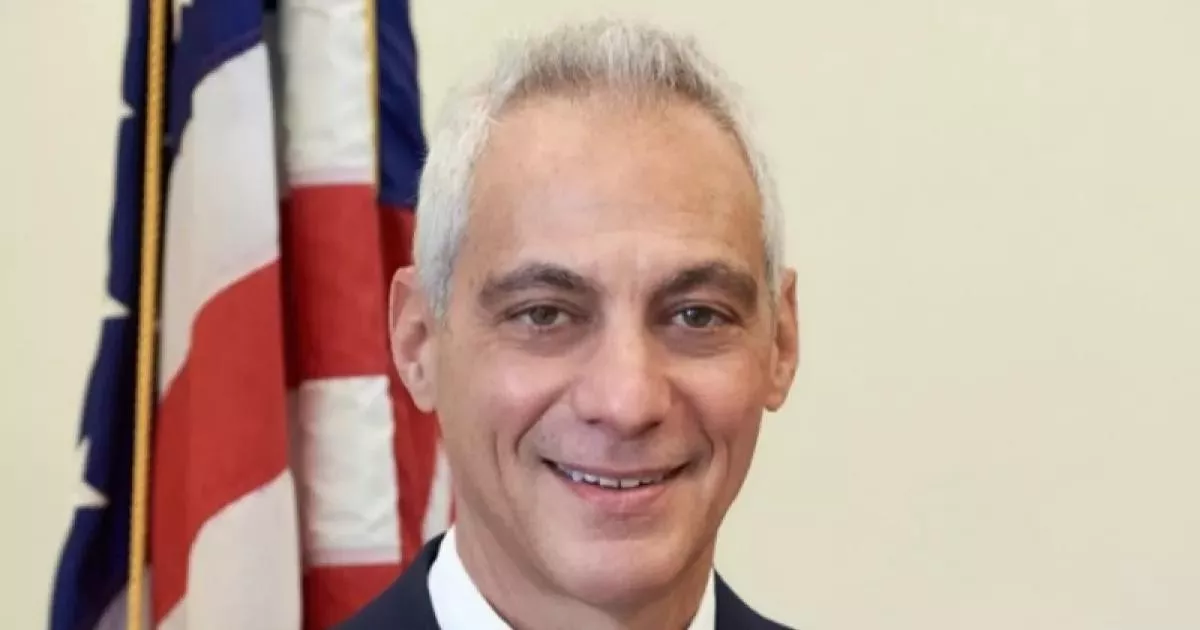A closer look at the defining struggles that shaped Rahm Emanuel's life and career.
Rahm Emanuel is an American politician and diplomat. He served as the United States Ambassador to Japan from 2022 to 2025. Prior to this, he represented Illinois in the U.S. House of Representatives (2003-2009), was White House Chief of Staff under President Barack Obama (2009-2010), and served as Mayor of Chicago for two terms (2011-2019). A member of the Democratic Party, his career spans legislative, executive, and municipal government roles.
2009: Pushback on the Affordable Care Act
During the summer of 2009, Rahm Emanuel reportedly "begged" President Obama for an entire week to not pursue the Affordable Care Act, advocating for a scaled-down plan instead.
January 24, 2011: Court of Appeals challenges Emanuel's eligibility
On January 24, 2011, the Court of Appeals reversed the Circuit Court, holding that residency for purposes of a candidate is different from residency for purposes of being a voter, challenging Emanuel's eligibility for office.
August 8, 2012: CTU Authorizes Strike
On August 8, 2012, the Chicago Teachers Union (CTU) voted 90% to authorize a strike due to unresolved issues in contract negotiations with the city.
September 18, 2012: CTU Delegates Vote to End Strike
On September 18, 2012, delegates from the CTU voted to end the strike, and students began returning to schools the following day.
September 17, 2013: Chicago School Closures Announced
On September 17, 2013, Rahm Emanuel's appointed Chicago Board of Education announced the closing of 50 Chicago public schools, which included 49 elementary schools and a high school.
August 2014: Chicago Tribune poll reports low approval rating
In August 2014, a Chicago Tribune poll reported Emanuel had a 35% approval rating as mayor of Chicago.
October 20, 2014: Police murder of Laquan McDonald
On October 20, 2014, Laquan McDonald was murdered by a Chicago police officer, leading to significant controversy and criticism of Emanuel's handling of the situation.
November 24, 2015: Dash-cam video of shooting is released
On November 24, 2015, the dash-cam video of the Laquan McDonald shooting was released after a judge ordered it, leading to further condemnation of Emanuel's handling of the incident.
December 26, 2015: Police Shooting Incident
On December 26, 2015, a police officer killed two people in another shooting, including a woman whom the officer had shot by mistake.
2015: Won Chicago Mayoral Election, approval rating plunged
In the 2015 Chicago mayoral election, Rahm Emanuel won in the run-off. In late 2015, Emanuel's approval rating plunged to the low 20s due to a series of scandals.
February 2016: Record Low Approval Ratings
In February 2016, Chicago Tribune polls reported that Rahm Emanuel's approval ratings had dropped to 27%, due to his role as the Mayor of Chicago.
March 2017: Release of Withheld Emails
In March 2017, the Chicago Tribune reported Rahm Emanuel released 2,696 emails he had previously withheld, revealing possible violations of lobbying laws.
Mentioned in this timeline

Barack Obama the th U S President - was the...

Hillary Diane Rodham Clinton is a prominent American politician lawyer...

Lollapalooza is an annual four-day music festival held in Grant...

The White House located at Pennsylvania Avenue NW in Washington...
ABC News is the news division of the American television...
China officially the People's Republic of China is an East...
Trending

39 minutes ago Warriors face play-in, Curry's injury raises concerns, Kerr lowers expectations, Moody's role?

39 minutes ago Stephen A. Smith criticizes Draymond Green's comments on Nico Harrison as unfair.

39 minutes ago Kris Dunn Recovered From Injury, Briefly Exited Game After Elbow Contact

40 minutes ago Al Horford's Role Shifts: Back to Starting Lineup, Then Bench, Mindset Revealed.

2 hours ago Jafar Panahi faces restrictions, continues filmmaking despite adversity and imprisonment in Iran.

2 hours ago Joe Rogan Interviews RFK Jr. on Trump's ICE Raids and US Taxpayer Losses.
Popular

Jesse Jackson is an American civil rights activist politician and...

Hillary Diane Rodham Clinton is a prominent American politician lawyer...

Jim Carrey is a Canadian-American actor and comedian celebrated for...

XXXTentacion born Jahseh Dwayne Ricardo Onfroy was a controversial yet...

Michael Joseph Jackson the King of Pop was a highly...

Kashyap Pramod Patel is an American lawyer who became the...
